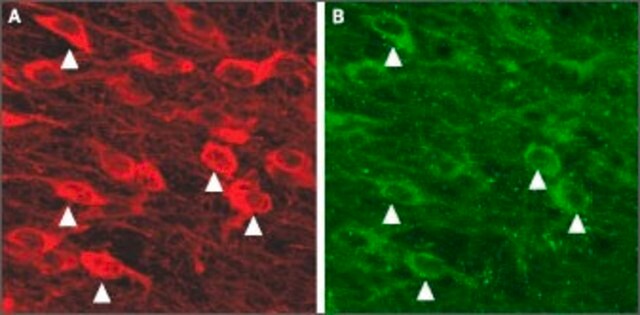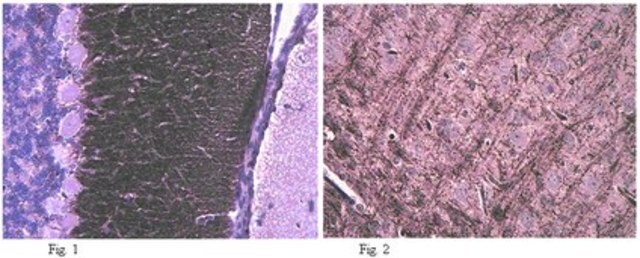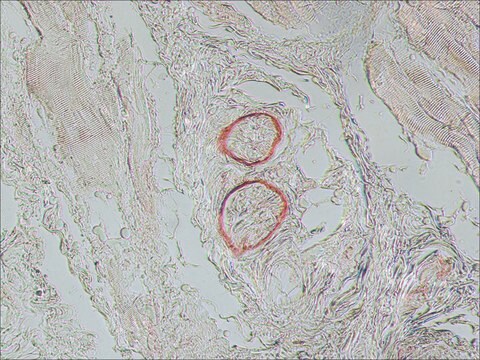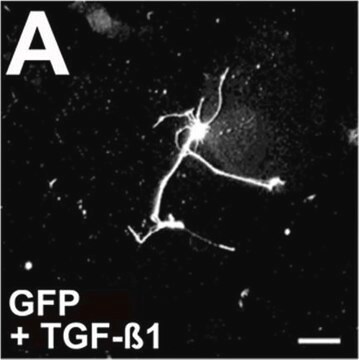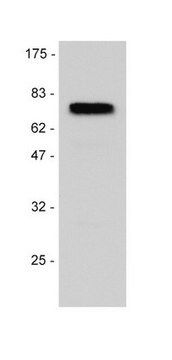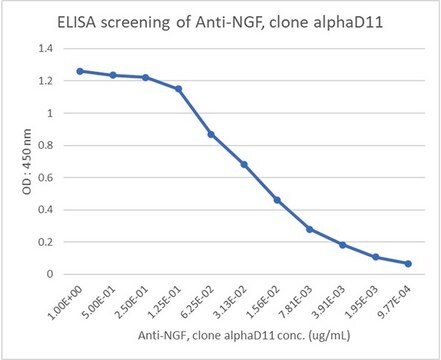AB5350
Anti-Potassium Channel SK3 Antibody
Chemicon®, from rabbit
Sinónimos:
KCa3, Kcnn3, SKCa3
About This Item
Productos recomendados
biological source
rabbit
Quality Level
antibody form
affinity purified immunoglobulin
antibody product type
primary antibodies
clone
polyclonal
purified by
affinity chromatography
species reactivity
human, rat
manufacturer/tradename
Chemicon®
technique(s)
western blot: suitable
NCBI accession no.
UniProt accession no.
shipped in
wet ice
target post-translational modification
unmodified
Gene Information
human ... KCNN4(3783)
Specificity
Immunogen
Application
Neuroscience
Ion Channels & Transporters
Dilutions should be made using a carrier protein such as BSA (1-3%).
Optimal working dilutions must be determined by the end user.
Physical form
Storage and Stability
Analysis Note
CONTROL ANTIGEN: Included free of charge with the antibody is 20 μg of control antigen (lyophilized powder). Reconstitute with 100 μL of sterile distilled water. For negative control, preincubate 1 μg of purified peptide with 1 μg of antibody for one hour at room temperature. Optimal concentrations must be determined by the end user.
Other Notes
Legal Information
Disclaimer
¿No encuentra el producto adecuado?
Pruebe nuestro Herramienta de selección de productos.
hcodes
pcodes
Hazard Classifications
Aquatic Chronic 3
Storage Class
11 - Combustible Solids
wgk_germany
WGK 3
Certificados de análisis (COA)
Busque Certificados de análisis (COA) introduciendo el número de lote del producto. Los números de lote se encuentran en la etiqueta del producto después de las palabras «Lot» o «Batch»
¿Ya tiene este producto?
Encuentre la documentación para los productos que ha comprado recientemente en la Biblioteca de documentos.
Nuestro equipo de científicos tiene experiencia en todas las áreas de investigación: Ciencias de la vida, Ciencia de los materiales, Síntesis química, Cromatografía, Analítica y muchas otras.
Póngase en contacto con el Servicio técnico
